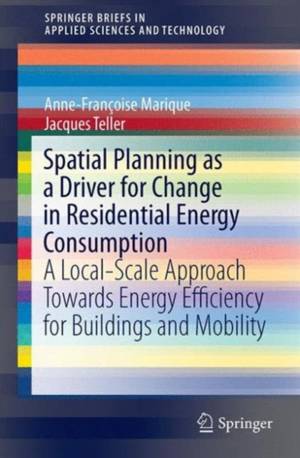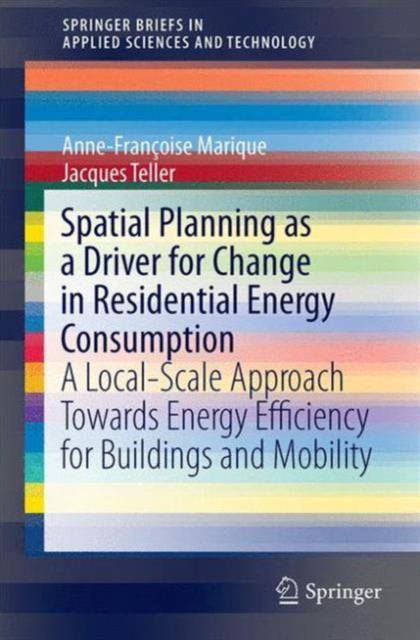
Bedankt voor het vertrouwen het afgelopen jaar! Om jou te bedanken bieden we GRATIS verzending (in België) aan op alles gedurende de hele maand januari.
- Afhalen na 1 uur in een winkel met voorraad
- Gratis thuislevering in België vanaf € 30
- Ruim aanbod met 7 miljoen producten
Bedankt voor het vertrouwen het afgelopen jaar! Om jou te bedanken bieden we GRATIS verzending (in België) aan op alles gedurende de hele maand januari.
- Afhalen na 1 uur in een winkel met voorraad
- Gratis thuislevering in België vanaf € 30
- Ruim aanbod met 7 miljoen producten
Zoeken
Spatial Planning as a Driver for Change in Residential Energy Consumption
A Local-Scale Approach Towards Energy Efficiency for Buildings and Mobility
Anne-Françoise Marique, Jacques Teller
€ 62,95
+ 125 punten
Omschrijving
Presenting in-depth information on the role of spatial planning as a driver for change in residential energy consumption at the local/neighbourhood level, this book provides readers with novel insights into the potential offered by local-level efforts and the value of pursuing an integrated approach that combines transportation and building energy consumption in a holistic framework. Orientated on the future development of research and practice in the field of sustainable urban planning, including (sub-) urban renewal, the development/retrofitting of sustainable neighbourhoods and their integration as a part of "smart cities", the book utilizes an in-depth case study of the Walloon territory to highlight suburban renewal at the local/neighbourhood level and serve as an example of the move towards sustainability in built environments. Suitable for researchers and students in urban planning, architecture or the engineering sciences, as well as local actors - who will find key insights into the relationships between spatial planning and energy consumption, as well as recommendations to inform the development of local policies aimed at improving and managing the energy efficiency of existing neighbourhoods and territories - the book both examines current trends (favouring compact cities, etc.) and sparks new discourses in both building and transportation energy consumption and promoting interdisciplinary knowledge transfer on sustainable urban forms.
Specificaties
Betrokkenen
- Auteur(s):
- Uitgeverij:
Inhoud
- Aantal bladzijden:
- 140
- Taal:
- Engels
- Reeks:
Eigenschappen
- Productcode (EAN):
- 9783319277677
- Verschijningsdatum:
- 22/10/2017
- Uitvoering:
- Hardcover
- Afmetingen:
- 155 mm x 235 mm

Alleen bij Standaard Boekhandel
+ 125 punten op je klantenkaart van Standaard Boekhandel
Beoordelingen
We publiceren alleen reviews die voldoen aan de voorwaarden voor reviews. Bekijk onze voorwaarden voor reviews.









